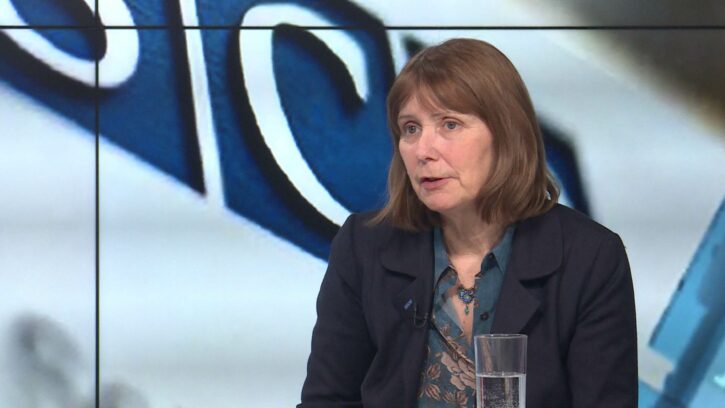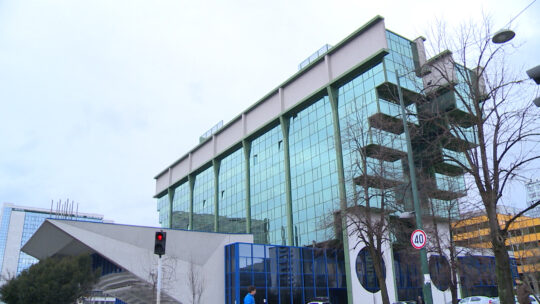
Bosnia’s political system suffers from patronage, conflicts of interest and corruption and public trust in institutions is low, the Head of the OSCE Mission in Bosnia, Kathleen Kavalec, said at a session of the Krug 99 association of independent intellectuals on Sunday.
“The functioning of parliaments is problematic, and citizens’ trust in politicians, political parties, elections and public institutions is low. Unfortunately, we face a lack of serious policy debate between citizens and politicians, and internal party democracies are underdeveloped,” Kavalec said.
She said that this also applies to issues such as the barriers women and youth face regarding their participation in politics, as well as financial responsibility and decision-making within political parties.
She added that Bosnia’s political system suffers from “patronage, conflict of interest and corruption” which rarely anyone is held responsible for.
Kavalec welcomed the recent adoption of the state budget by the Presidency, expressing hope that the Parliament will soon adopt it as well, arguing that this will enable the country to secure a budget for the local elections, which are to take place in November 2020.
She noted that some political leaders have, prior to the adoption of the budget, argued that the financing of the election should not be secured before, as they argued, the illegal and illegitimate structure of the Central Election Commission (CEC) is revised.
She pointed out that the process of appointing new CEC members has shaken relations within the ruling coalition but that it is an issue that the court should decide on and that, unless it decides otherwise, all appointed CEC members are full members of the Commission.
Political parties have a right to express their opinion on the work of institutions and propose their preferred candidates to top positions and they may submit complaints regarding the activities of other political parties within those institutions, she said.
“But there should also be a clear boundary – the functioning and independent nature of institutions – especially institutions that are as important as the CEC – must be unconditionally guaranteed,” Kavalec stressed.
She said the OSCE is prepared to work with political parties and the parliaments within Bosnia and Herzegovina, as well as with the CEC, on the implementation of the OSCE’s Office for Democratic Institutions and Human Rights (ODIHR) through amendments to bylaws.
She argued that systemic shortcomings in legislation, bylaws and existing practices, that were identified by the ODIHR in their final reports following the 2010, 2014 and 2018 general elections, have put the elections at risk of irregularities and manipulation.
This does not necessarily put the overall credibility of the election, but recurring irregularities may affect the outcome in cases where the winning margin is negligible, she said.
Kavalec pointed out that citizens’ trust in democratic institutions depends on the real and perceived integrity of the electoral process.
“Without that, the long-term stability of democratic institutions in Bosnia and Herzegovina cannot be guaranteed,” she said, arguing that this is especially important for Bosnia because disinterest among citizens continues, the political process will increasingly be jeopardised by patronage and nepotism.
While political parties have already done a lot regarding this issue, a lot more needs to be done, including the implementation of ODIHR recommendations, as well as the GRECO recommendations of the Council of Europe regarding the financing of political parties, she said.
“This is possible with committed political leadership. The recent agreement on the elections in Mostar is proof that this is feasible,” she said.




